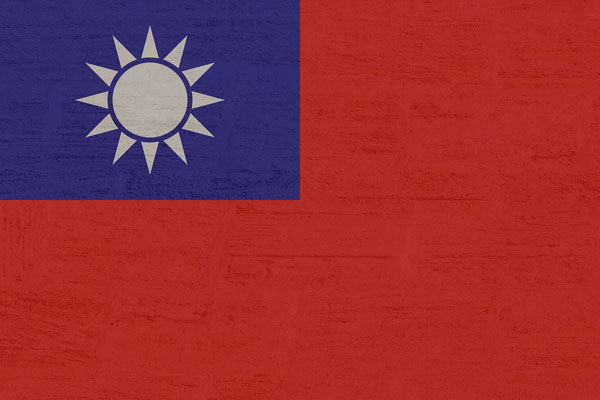China’s military drill heighten tensions over Taiwan

[Taiwan Flag Banner. Photo Credit to Pixabay]
China’s recent military drills around Taiwan have reignited controversy over territorial sovereignty and consequential increased tensions with the United States.
The exercises, conducted on May 23-24, 2024, involved China’s army, navy, air force, rocket force, and coastal guards, testing their capabilities to seize control over Taiwan.
During these drills, 49 Chinese aircrafts, 19 warships, and seven coast guard vessels were detected between 6 A.M. on May 23, 2024 and 6 A.M. on May 24, 2024.
According to Chinese military expert Zhang Chi, the exercises focused on new blockade strategies aimed at isolating Taiwan.
Taiwan heavily relies on imports and exports, and if China successfully imposes a blockade, it would face a severe economic threat.
Towards the south of Taiwan, China began conducting drills to blockade and target Kaohsiung port, the largest port in Taiwan and a base for its navy.
Meanwhile, China’s drills in the east of Taiwan cut off Taiwan's energy imports, escape routes, and, most importantly, the support line from the U.S..
The drills were reinitiated after more than a year and were completed days after the election of Taiwan’s new president, Lai Ching-te.
China’s Communist Party denounced President Lai following his criticism of China’s intimidation tactics on May 20, 2024.
This is not the first time such tensions have surfaced; similar drills were conducted in August 2022 protesting against the visit of U.S. Representative Nancy Pelosi’s visit to Taiwan.
Despite drills being formally ended, China’s military activities continued with warplanes and warships carrying out a “joint combat readiness patrol.”
Dr. Chieh Chung, a professor in Taiwan, suggested that these actions may indicate stages of a broader invasion plan to blockade external aid to Taiwan.
In response, Taiwan’s Defense Ministry criticized China’s military exercises as irrational, and proceeded to deploy their own air, sea and ground forces.
Taiwan has also promoted an idea of "asymmetric warfare" to make its much smaller forces mobile and harder to attack with missile mounted vehicles and drones.
Li Xi, a spokesman for the Chinese People’s Liberation Army, condemned Taiwan by denouncing the interference of external forces, such as the United States, in Taiwan.
The U.S. and Taiwan share close diplomatic ties, prompting China to issue a warning to the U.S. should it become further involved in the conflict.
For example, China fears U.S. engagement due to the U.S.’s military plans to turn Taiwan into an “unmanned hellscape”, which is a military tactic term referring to the involvement of unmanned armed vehicles, if China invades.
The U.S. also sent $20 billion worth of arms sales to Taiwan years ago which is now in use, as well as $80 million worth of F-16 fighter jets spare and repair parts.
As of June 7, 2024, China’s Defense Ministry has again criticized the U.S. on their interference, strongly disapproving the arms sale and urging the U.S. to quickly withdraw it.
Taiwan’s defense minister Wellington Koo, on June 17, 2024, emphasized that Taiwan does not seek war with China but aims to strengthen its defensive capabilities to deter China aggression.
A few analysts suggest that the U.S. might need to supply Taiwan with more arms and ammunition.
Due to China’s strong desire to obtain Taiwan, the island has faced huge difficulties in participating in major international conventions, such as the World Health Organization meetings.
Taiwan has been under increasing military and political pressure from Beijing to accept sovereignty claims that the Taipei government rejects.
Because opposing parties of President Lai started favoring closer ties with China, Taiwan has faced internal problems, causing chaos in the government.
As the conflict between Taiwan and China escalates further, it could lead to a potential invasion of Taiwan in the coming years.
Several U.S. military and intelligence officials have publicly revealed that China’s plans to invade Taiwan could be executed by 2027.
Senior U.S. intelligence analyst Zev Faintuch indicated that Taiwan predicts China to invade in 2025.
With increasing military preparations and heightened tensions, the possibility of a Chinese invasion of Taiwan emerges as a critical threat to the country's security and independence.

- Matthew Park / Grade 9
- Seoul International School

![THE HERALD STUDENT REPORTERS [US]](/assets/images/logo_student_us.png)
![THE HERALD STUDENT REPORTERS [Canada]](/assets/images/logo_student_ca.png)
